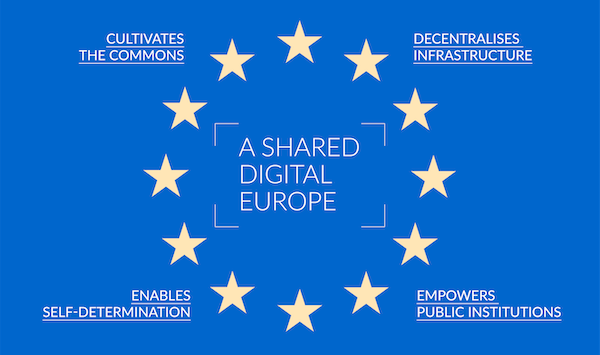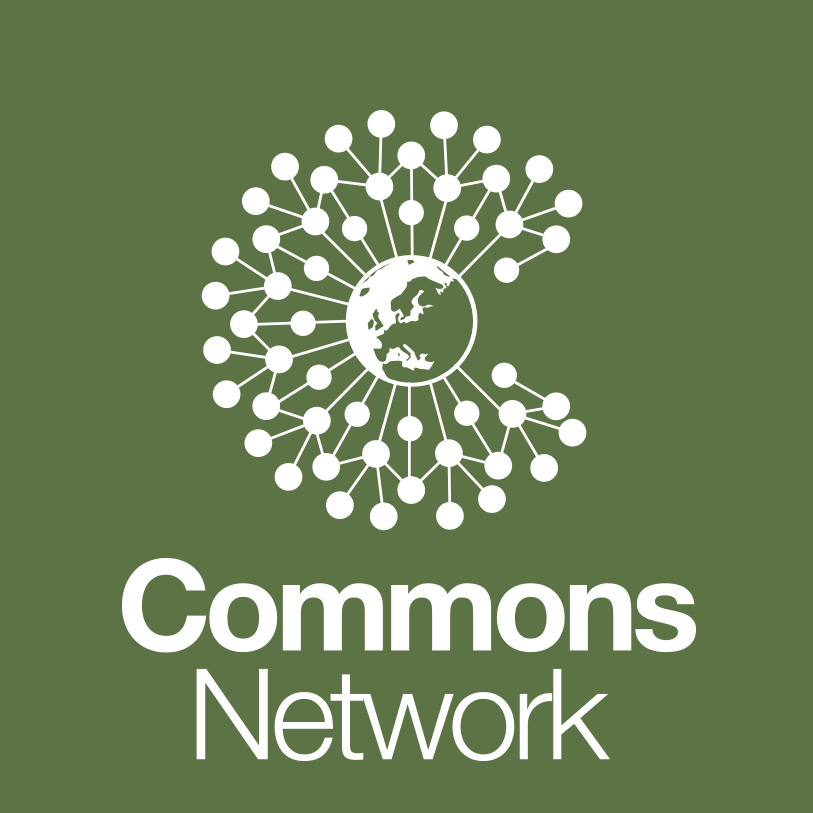It’s almost summer, so here is a selection of the ten most impactful publications (in no particular order) that we released in the past two years.

1.
What can commoners do for Europe and what can the EU do for us? In other words: how can we work together to support the commons and what can politicians do to help? Read this report and make sure the newly elected MEPs read it too.
2.
Less concrete on policy ideas, more focused on vision, this essay positions the commons as the ideal blueprint for a new European narrative.
3.
The third publication in the series on the commons in Europe, for Europe is called The Commons as a Unifying Vision and was published in a book by our friends from European Alternatives. A call to all transformative movements to get inspired by the commons to further their unifying new vision for Europe.

4.
Knowledge as a commons. Europe is ideally placed to further develop this ideal into actual policy. But the threat of enclosure is ever-growing, which is why knowledge as a commons is one of our most important fields of work. Here is the definitive report on how the EU can facilitate the knowledge commons.
5.
What can policy makers do to facilitate the emerging urban commons? What are urban commoners doing and what can we learn from them? This widely shared report combines storytelling and policy ideas to re-shape the narrative on active citizenship and alternative urban economies. A must-read for everyone interested in progressive city politics.
6.
Equally groundbreaking and ambitious, this policy report impacted the thinking of both EU-policy makers and public health researchers. From Lab to Commons showcases our new vision on biomedical knowledge as a commons. The current way in which new drugs are developed and sold is built on out-dated patent laws, dictated by Big Pharma. This is our answer. The publication is both radical in the vision it presents and concrete in the policy ideas it lays out.

7.
Our digital sphere is privatised, our digital life is surveilled and our digital data is commodified. The internet (small cast -i-) in 2019 is almost entirely enclosed and activists have not had much success in reversing these trends. From copyright reform to privacy debates, from encroaching ‘smart’ cities to the eroding online public discourse, we are in urgent need of a new and holistic vision. Shared Digital Europe effectively re-frames the debate, calling for decentralisation of infrastructure, digital commons, informational self-determination and public institutions as four pillars of a new vision for digital Europe.
8.
Democracy in Europe is under siege. Efforst by liberals like Macron to re-position the democracy debate mostly fail to recognise that a truly democratic society goes way beyond innovative decision-making in an institutional way: we can only accomplish a truly democratic society when we are back n control as citizens, not just over our politics, but over our daily life. A democratised economy and an inclusive society are the first prerequisites for any effort to democratise Europe. A manifesto.
9.
Healthcare is a common good, fundamental to people’s wellbeing. It is one of our most basic rights and the majority of Europeans want the EU to do more for health. The right to health includes access to timely, acceptable, and affordable health care and medicines of quality. In recent years we have increasingly surrendered the production and pricing of new medicines to an overriding logic of double-digit profits and Big Pharma. This manifesto helps politicians reverse this trend before it is too late.

10.
The Book! Sophie and Thomas of Commons Network worked on this book for two years. In the week before the European elections, it was finally published. Our Commons: Political Ideas for a New Europe features contributions from Kate Raworth, David Bollier, George Monbiot, Sheila Foster and many others. The book combines essays, case studies and interviews to showcase the emerging discourse that is the commons. The 200-page book is released for free as an e-Book and as print-on-demand on many platforms.
Commons Network will keep working on the intersection of activism, academia and policy to support commoners and defend the commons worldwide. Make sure you follow us on Twitter to stay in the loop or reach out to us at thomas@commonsnetwork.eu. Omnia Sunt Communia!

 ☰
☰